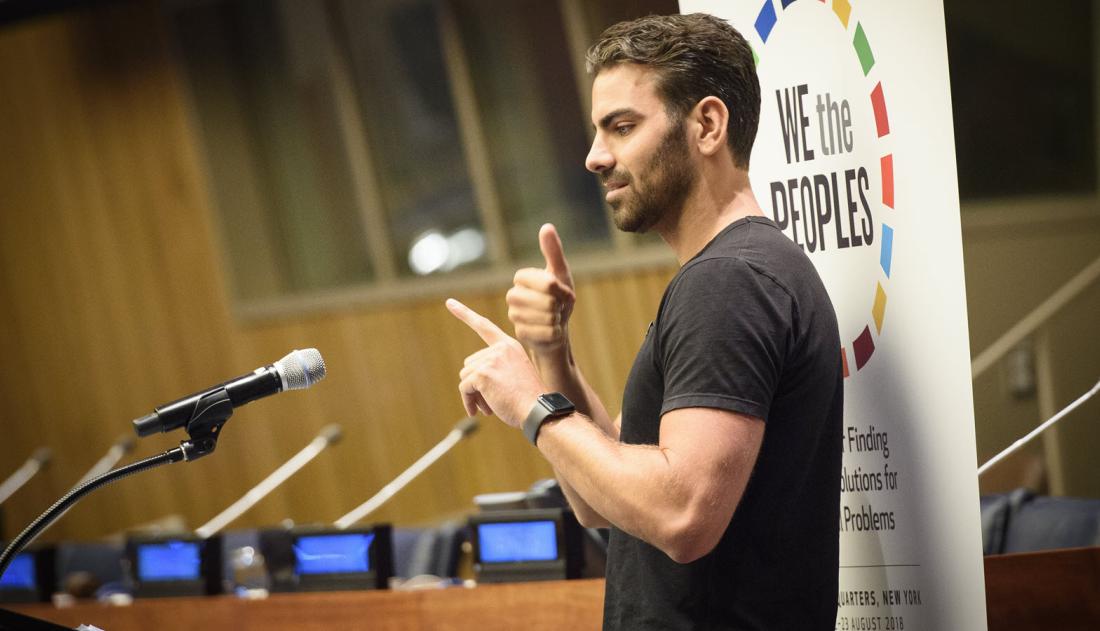
According to the World Federation of the Deaf, there are approximately 72 million deaf people worldwide. More than 80% of them live in developing countries. Collectively, they use more than 300 different sign languages.
Sign languages are fully fledged natural languages, structurally distinct from the spoken languages. There is also an international sign language, which is used by deaf people in international meetings and informally when travelling and socializing. It is considered a pidgin form of sign language that is not as complex as natural sign languages and has a limited lexicon.
The Convention on the Rights of Persons with Disabilities recognizes and promotes the use of sign languages. It makes clear that sign languages are equal in status to spoken languages and obligates states parties to facilitate the learning of sign language and promote the linguistic identity of the deaf community.
The UN General Assembly has proclaimed 23 September as the International Day of Sign Languages in order to raise awareness of the importance of sign language in the full realization of the human rights of people who are deaf.
The first International Day of Sign languages will be celebrated in 2018 under the theme “With Sign Language, Everyone is Included!”
The resolution establishing the day acknowledges that early access to sign language and services in sign language, including quality education available in sign language, is vital to the growth and development of the deaf individual and critical to the achievement of the internationally agreed development goals. It recognizes the importance of preserving sign languages as part of linguistic and cultural diversity. It also emphasizes the principle of “nothing about us without us” in terms of working with deaf communities.
Deaf advocate voices importance of sign languages as UN marks first commemoration
Mr. DiMarco, who reached fame after winning America’s Next Top Model in the United States, advocates for children learning sign language at an early age. The 29-year old grew up in an all-deaf family and has more than 25 relatives who are deaf.
“I advocate for early education because growing up, my life was really privileged. My deaf parents knew exactly how to raise a deaf child,” Mr. DiMarco told UN News during a visit to the United Nations Headquarters for an event linked to the Sustainable Development Goals (SDGs).
On Sunday, the UN is marking the first International Day of Sign Languages, at the start of the official International Week of the Deaf. The UN General Assembly selected 23 September to coincide with the date the World Federation of the Deaf (WFD) was founded, in 1951. WFD consists of 135 national associations of deaf people and strives to defend their human rights.
Mr. DiMarco studied in a deaf school and attended a private university for deaf and hard-of-hearing students. Growing up with an education, Mr. DiMarco says he was able “to define who [he] was.” He played sports, was involved in different organisations and skateboarded.
The advocate is among 72 million deaf people worldwide, of whom only 2 per cent have access to a formal education.
“How can they be expected to succeed and have the same successes in their lives as someone with the same privileges that I had,” Mr. DiMarco said of other deaf people who grew up without setting foot in a classroom.
He noted that in some countries sign language is considered “a mere gesture” which results in deaf children being deprived of a language, and also unable to define their own lives.
Source: UN News
 Welcome to the United Nations
Welcome to the United Nations


